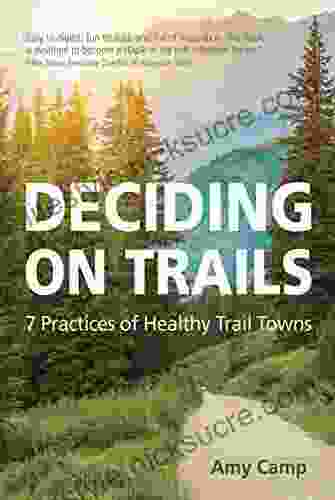A Comprehensive Field Guide for Parents of Children With Dyslexia: Understanding, Supporting, and Empowering Your Child

Dyslexia, a neurodevelopmental disorder that affects reading, writing, and language, can pose significant challenges for children and their parents. However, with the right understanding, support, and strategies, children with dyslexia can thrive and reach their full potential. This field guide provides a comprehensive overview of dyslexia, empowering parents to navigate the challenges and discover the strengths of their child's unique learning style.
Understanding Dyslexia
Dyslexia is a spectrum disorder, meaning that its symptoms can vary widely from one individual to another. Common characteristics include:
4.8 out of 5
| Language | : | English |
| File size | : | 7920 KB |
| Text-to-Speech | : | Enabled |
| Screen Reader | : | Supported |
| Enhanced typesetting | : | Enabled |
| Word Wise | : | Enabled |
| Print length | : | 207 pages |
| Lending | : | Enabled |
- Difficulty decoding written words
- Slow and labored reading
- Poor spelling
- Difficulty with writing and composition
- Trouble with phonemic awareness (the ability to identify and manipulate sounds)
- Weak working memory
It is important to note that dyslexia is not a sign of intellectual disability. Children with dyslexia often have average or above-average intelligence, but they may struggle with the traditional methods of reading and writing instruction.
Supporting Your Child
Supporting a child with dyslexia requires a multifaceted approach, including:
- Early identification and intervention: The earlier dyslexia is identified, the more effective interventions can be. If you suspect your child may have dyslexia, talk to your pediatrician or consult an educational psychologist.
- Multisensory instruction: Children with dyslexia learn best when they are exposed to information through multiple senses, such as sight, sound, and touch. Use multisensory activities to teach your child about phonics, spelling, and reading comprehension.
- Structured literacy instruction: Structured literacy programs focus on teaching the underlying skills of reading and writing, including phonemic awareness, phonics, and decoding. These programs have been shown to be highly effective for children with dyslexia.
- Assistive technology: Assistive technology, such as text-to-speech software and audiobooks, can help children with dyslexia overcome reading and writing challenges.
- Emotional support: Children with dyslexia often experience frustration and low self-esteem. Provide your child with plenty of love and support, and help them to understand that their dyslexia is not a sign of failure.
Empowering Your Child
In addition to providing support, it is essential to empower your child with dyslexia. This means helping them to understand their strengths and weaknesses, and developing strategies for overcoming challenges. Here are some ways to empower your child:
- Encourage their interests: Children with dyslexia often have strengths in other areas, such as art, music, or sports. Encourage your child to pursue their interests and develop their talents.
- Celebrate their successes: It is important to celebrate your child's successes, no matter how small. This will help them to build confidence and believe in their abilities.
- Encourage self-advocacy: Teach your child about dyslexia and how it affects them. Help them to develop strategies for coping with challenges and advocating for their needs.
- Connect with other families: Join support groups or connect with other families who have children with dyslexia. This will provide you with a community of support and understanding.
Raising a child with dyslexia can be challenging, but it is also an opportunity for growth and discovery. By understanding your child's unique learning style, providing support, and empowering them to reach their full potential, you can help your child overcome challenges and thrive.
Resources
- International Dyslexia Association
- Understood.org: Dyslexia
- National Institute of Child Health and Human Development: Dyslexia
4.8 out of 5
| Language | : | English |
| File size | : | 7920 KB |
| Text-to-Speech | : | Enabled |
| Screen Reader | : | Supported |
| Enhanced typesetting | : | Enabled |
| Word Wise | : | Enabled |
| Print length | : | 207 pages |
| Lending | : | Enabled |
Do you want to contribute by writing guest posts on this blog?
Please contact us and send us a resume of previous articles that you have written.
 Fiction
Fiction Non Fiction
Non Fiction Romance
Romance Mystery
Mystery Thriller
Thriller SciFi
SciFi Fantasy
Fantasy Horror
Horror Biography
Biography Selfhelp
Selfhelp Business
Business History
History Classics
Classics Poetry
Poetry Childrens
Childrens Young Adult
Young Adult Educational
Educational Cooking
Cooking Travel
Travel Lifestyle
Lifestyle Spirituality
Spirituality Health
Health Fitness
Fitness Technology
Technology Science
Science Arts
Arts Crafts
Crafts DIY
DIY Gardening
Gardening Petcare
Petcare Sharon K Zumbrunn
Sharon K Zumbrunn Bridget Ericsson
Bridget Ericsson Mark Taylor
Mark Taylor Christopher Harlan
Christopher Harlan Amy Blakeslee
Amy Blakeslee Dom Amore
Dom Amore Kieron Gillen
Kieron Gillen Antonio R Damasio
Antonio R Damasio C W Lockhart
C W Lockhart Suzanne Stabile
Suzanne Stabile Traci Gormley
Traci Gormley Zeshan Qureshi
Zeshan Qureshi Erica T Lehrer
Erica T Lehrer Clotaire Rapaille
Clotaire Rapaille Jon Bonnell
Jon Bonnell Dana Obleman
Dana Obleman Christine Fanthome
Christine Fanthome Sean Go
Sean Go Deborah Lipsky
Deborah Lipsky Ananda Lowe
Ananda Lowe Garrett M Fitzmaurice
Garrett M Fitzmaurice Theresa Y Wee M D
Theresa Y Wee M D Janet Engle
Janet Engle Ray Mancini
Ray Mancini J Marin Younker
J Marin Younker Courtney Defeo
Courtney Defeo Pamela Lynn
Pamela Lynn John Maxwell Wood
John Maxwell Wood Marshall Goldsmith
Marshall Goldsmith E T Bryant
E T Bryant Dave Hanson
Dave Hanson Randy Schultz
Randy Schultz Jeffrey Steadman
Jeffrey Steadman Steve Greenberg
Steve Greenberg Amy B Middleman
Amy B Middleman Angela Moore
Angela Moore Nisha Garg
Nisha Garg Torey L Hayden
Torey L Hayden Adam Cort
Adam Cort Josh Taylor
Josh Taylor Isabella Krystynek
Isabella Krystynek Ruth M Tappen
Ruth M Tappen Mark Turley
Mark Turley Sarah Woodbury
Sarah Woodbury Joan Freeman
Joan Freeman Jake Maddox
Jake Maddox Paul Graham
Paul Graham Nathan Belofsky
Nathan Belofsky Kristine Kathryn Rusch
Kristine Kathryn Rusch Amrita Pande
Amrita Pande Rodney M Howard Browne
Rodney M Howard Browne Brian Klaas
Brian Klaas Carlo Buzzichelli
Carlo Buzzichelli Nicholas A Christakis
Nicholas A Christakis Cheri Rae
Cheri Rae Joe Dan Lowry
Joe Dan Lowry Patrick O Sullivan
Patrick O Sullivan Martin Pollizotto
Martin Pollizotto Neville Goddard
Neville Goddard Tracy Lorraine
Tracy Lorraine Amber Smith
Amber Smith Joe E Harvey
Joe E Harvey Nikala Smith
Nikala Smith Philip Gibson
Philip Gibson Kathy Spratt
Kathy Spratt Tim Hornbaker
Tim Hornbaker Amy Camp
Amy Camp Johan Norberg
Johan Norberg Michael Ondaatje
Michael Ondaatje Anna B Doe
Anna B Doe Joseph Mcmoneagle
Joseph Mcmoneagle Kathy A Zahler
Kathy A Zahler Alex Polyakov
Alex Polyakov Jack Falla
Jack Falla Stephen J Collier
Stephen J Collier John Jacobs
John Jacobs Iain Pardoe
Iain Pardoe Ronda Rousey
Ronda Rousey Andy Singleton
Andy Singleton Susanna Heli
Susanna Heli Mark Stallard
Mark Stallard Stanley J Farlow
Stanley J Farlow Julie Schacht Sway
Julie Schacht Sway Michael Reichert
Michael Reichert Richard Cohen
Richard Cohen P Aarne Vesilind
P Aarne Vesilind Joseph P Weir
Joseph P Weir Laini Taylor
Laini Taylor Dima Zales
Dima Zales Stephenie Meyer
Stephenie Meyer Deborah Vinall Psyd Lmft
Deborah Vinall Psyd Lmft Warren B Powell
Warren B Powell Kresley Cole
Kresley Cole Tijan
Tijan Christina Kamp
Christina Kamp Edward J Denecke
Edward J Denecke Denise Ni
Denise Ni Donovan Hohn
Donovan Hohn Steven Charleston
Steven Charleston Amie Lands
Amie Lands Jocelyn Goodwin
Jocelyn Goodwin Jonathan Bartlett
Jonathan Bartlett David Grinspoon
David Grinspoon Joseph Klaits
Joseph Klaits Robert A Weinberg
Robert A Weinberg Joe Nickell
Joe Nickell Temple Grandin
Temple Grandin Sue Monk Kidd
Sue Monk Kidd Laura Slinn
Laura Slinn Karen Deerwester
Karen Deerwester Rick Deutsch
Rick Deutsch Gia Giasullo
Gia Giasullo Julie Barlow
Julie Barlow David Ranney
David Ranney Shanna Cunning
Shanna Cunning Diane Greer
Diane Greer Benjamin Jelen
Benjamin Jelen Gina Chen
Gina Chen Amiee Mueller
Amiee Mueller Vicki Hearne
Vicki Hearne Larry K Brendtro
Larry K Brendtro Katherine Kurtz
Katherine Kurtz Glenn Stout
Glenn Stout Sandra Luna Mccune
Sandra Luna Mccune Don Bowers
Don Bowers Nick Kolenda
Nick Kolenda Peter Worley
Peter Worley Autumn Jordon
Autumn Jordon Matthew Lombardi
Matthew Lombardi Valerie Bass
Valerie Bass Saleh Alkhalifa
Saleh Alkhalifa Eric Zweig
Eric Zweig Amelia Freer
Amelia Freer Alex Stone
Alex Stone Erin Chack
Erin Chack Ellie Wood
Ellie Wood Jason Borte
Jason Borte William G Dever
William G Dever Wolf Moon
Wolf Moon Josiah Hesse
Josiah Hesse Christopher E Larsen
Christopher E Larsen Mitt Romney
Mitt Romney Amante P Marinas
Amante P Marinas A Sorority Of Mothers
A Sorority Of Mothers Lisa Maloney
Lisa Maloney Dr Bob Rotella
Dr Bob Rotella Andrey Ryanskiy
Andrey Ryanskiy Ruth Nestvold
Ruth Nestvold Therese A Rando
Therese A Rando Ashley Scott
Ashley Scott Jan E Stets
Jan E Stets Dolores Kong
Dolores Kong Clancy Cavnar
Clancy Cavnar David Salsburg
David Salsburg Amelia Edith Huddleston Barr
Amelia Edith Huddleston Barr Robb Walsh
Robb Walsh Rick Stanton
Rick Stanton Oscar Baechler
Oscar Baechler Jacob Bronowski
Jacob Bronowski Charles J Alsheimer
Charles J Alsheimer C L Simchick
C L SimchickK D
 Tavi Gevinson
Tavi Gevinson Summer Michaud Skog
Summer Michaud Skog Shaun Gallagher
Shaun Gallagher Michael Winkelman
Michael Winkelman Topher Donahue
Topher Donahue Danny Dreyer
Danny Dreyer Mac Fortner
Mac Fortner Elise Christie
Elise Christie Susan White
Susan White Douglas Wilson
Douglas Wilson Chris Carlsson
Chris Carlsson Amber Foster
Amber Foster Victoria Richards
Victoria Richards Stephen Goodwin
Stephen Goodwin Terry Wieland
Terry Wieland Paul Kockelman
Paul Kockelman Alan I Marcus
Alan I Marcus Shere Hite
Shere Hite Rosanna Davison
Rosanna Davison Amber Lia
Amber Lia Kate Parham Kordsmeier
Kate Parham Kordsmeier Roman Gelperin
Roman Gelperin William Bohan
William Bohan Buck Tilton
Buck Tilton Catherine Ryan Gregory
Catherine Ryan Gregory Stephen M Barr
Stephen M Barr Stephen Walker
Stephen Walker Amie Kaufman
Amie Kaufman James W Williams
James W Williams Ignatius Donnelly
Ignatius Donnelly Sarah Morgan Haydock
Sarah Morgan Haydock Amira Mikhail
Amira Mikhail Tom Patri
Tom Patri Lizabeth Hardman
Lizabeth Hardman Tamora Pierce
Tamora Pierce Sarah J Maas
Sarah J Maas Mike Adamick
Mike Adamick Jameson M Wetmore
Jameson M Wetmore Amy Bleuel
Amy Bleuel Tom Colicchio
Tom Colicchio Krystal Sutherland
Krystal Sutherland James P Kelly
James P Kelly Marisa Anne Bass
Marisa Anne Bass Amy Mccready
Amy Mccready William Glasser M D
William Glasser M D George Bernard Shaw
George Bernard Shaw The 60 Minutes Summary
The 60 Minutes Summary Jennifer S Kelly
Jennifer S Kelly Tanya Turner
Tanya Turner Jack Weatherford
Jack Weatherford Julie Mosier
Julie Mosier J L Weil
J L Weil Michael Parker Pearson
Michael Parker Pearson Marina Robb
Marina Robb Wendy Margolis
Wendy Margolis Alexandrea Weis
Alexandrea Weis Rich Rousseau
Rich Rousseau Desi Northup
Desi Northup Hadley Wickham
Hadley Wickham Patricia L Papernow
Patricia L Papernow Paul Dickson
Paul Dickson Erik Qualman
Erik Qualman Frank Nappi
Frank Nappi Robert Melillo
Robert Melillo Paul Oliver
Paul Oliver Jack Tupp
Jack Tupp Kathleen M Stacy
Kathleen M Stacy Jayson Gaddis
Jayson Gaddis Nicholeen Peck
Nicholeen Peck Julie Caplin
Julie Caplin David Yoon
David Yoon Shannon O Bourne
Shannon O Bourne Tabitha Suzuma
Tabitha Suzuma Gary Wiener
Gary Wiener Trevor Day
Trevor Day Jenni Hicks
Jenni Hicks Paul Kaplowitz
Paul Kaplowitz David Guymer
David Guymer Gerald Corey
Gerald Corey Eugene C Toy
Eugene C Toy Louise Bates Ames
Louise Bates Ames Thomas J Whalen
Thomas J Whalen John Ferrell
John Ferrell Kris Leonard
Kris Leonard Toni Tone
Toni Tone Sheri Van Dijk
Sheri Van Dijk John A Buehrens
John A Buehrens Jennifer Margulis
Jennifer Margulis William Stillman
William Stillman Chloe Gong
Chloe Gong Kumo Kagyu
Kumo Kagyu Anne Chambers
Anne Chambers John Bingham
John Bingham Eric E Bowne
Eric E Bowne Gail Maccoll
Gail Maccoll Pinky Mckay
Pinky Mckay Melody Schreiber
Melody Schreiber Trent Shelton
Trent Shelton Dmv Test Bank
Dmv Test Bank Anthony Horowitz
Anthony Horowitz Norman Doidge
Norman Doidge Peter Hayes
Peter Hayes Rose Mannering
Rose Mannering Laekan Zea Kemp
Laekan Zea Kemp Leslie Sansone
Leslie Sansone Maria Youtman
Maria Youtman Doug Peterson
Doug Peterson Jean Van T Hul
Jean Van T Hul Naomi Oreskes
Naomi Oreskes Byron Nelson
Byron Nelson Vince Kotchian
Vince Kotchian Philippa Langley
Philippa Langley Jeff Martone
Jeff Martone Candy Verney
Candy Verney Lisa Zimmer Hatch
Lisa Zimmer Hatch Devin Olsen
Devin Olsen Don Orwell
Don Orwell Don Mann
Don Mann Bruce Dowbiggin
Bruce Dowbiggin Sandra Bardwell
Sandra Bardwell Sarah Sumbal
Sarah Sumbal Reinhold Messner
Reinhold Messner J Stephen Jones
J Stephen Jones Kasie West
Kasie West Ned Vizzini
Ned Vizzini Tom Deck
Tom Deck Brendan Leonard
Brendan Leonard Joe Dante
Joe Dante Cynthia Gabriel
Cynthia Gabriel Christopher Cousteau
Christopher Cousteau Josephine Atluri
Josephine Atluri Victor J Stenger
Victor J Stenger Steven C Hayes
Steven C Hayes Michelle Newhart
Michelle Newhart Dan Abnett
Dan Abnett Kathleen Glasgow
Kathleen Glasgow Cookie O Gorman
Cookie O Gorman Randall E Schumacker
Randall E Schumacker Rachel Gurevich
Rachel Gurevich Ken Chaddock
Ken Chaddock Henry A Zumbrun 2
Henry A Zumbrun 2 Md Rezowan Ahmed
Md Rezowan Ahmed Lady Antiva
Lady Antiva Charles Hall
Charles Hall Jason Thompson
Jason Thompson Arlene Blum
Arlene Blum American Psychological Association
American Psychological Association Matthew L Martin
Matthew L Martin Helena P Blavasky
Helena P Blavasky Jonathon Miller Weisberger
Jonathon Miller Weisberger Michaela Riva Gaaserud
Michaela Riva Gaaserud Mariano Anaya
Mariano Anaya Mark Worden
Mark Worden Sarah Dessen
Sarah Dessen Derek Thompson
Derek Thompson K F Breene
K F Breene Frederick Lenz
Frederick Lenz William Rosen
William Rosen Mark W T Harvey
Mark W T Harvey Amelia Parker
Amelia Parker Vinod Kumar Khanna
Vinod Kumar Khanna Cody Monk
Cody Monk Peter Larson
Peter Larson Andy Couturier
Andy Couturier Jeanne Ryan
Jeanne Ryan Alan Margot
Alan Margot Tom Taulli
Tom Taulli Cole Hersowitz
Cole Hersowitz Art Star
Art Star Amy Baldwin
Amy Baldwin Eric T Knight
Eric T Knight Gal Dem
Gal Dem Jessica Cunsolo
Jessica Cunsolo Ana And Jack Hicks
Ana And Jack Hicks Michael Cosgrove
Michael Cosgrove Grant Dever
Grant Dever Emma Mae Jenkins
Emma Mae Jenkins Rob Antoun
Rob Antoun June Cl Tan
June Cl Tan Django Paris
Django Paris Bethanne Kim
Bethanne Kim Amby Cooper
Amby Cooper Dan Schlossberg
Dan Schlossberg John L Field
John L Field Jack Freeman
Jack Freeman Thom Hartmann
Thom Hartmann Chad Ford
Chad Ford Nikhil Bhardwaj
Nikhil Bhardwaj Harley Reid
Harley Reid Elizabeth Lim
Elizabeth Lim Tim Marshall
Tim Marshall Theodore Sider
Theodore Sider Lars Andersen
Lars Andersen Amber Zygutis
Amber Zygutis David Elkington
David Elkington Jeff Gaudette
Jeff Gaudette Richard Wagamese
Richard Wagamese H Bedford Jones
H Bedford Jones Victoria Wood
Victoria Wood Rob Fisher
Rob Fisher Shalabh Aggarwal
Shalabh Aggarwal Jenny Landreth
Jenny Landreth Amit Saha
Amit Saha John Lukacs
John Lukacs Andy Hunt
Andy Hunt Marit Weisenberg
Marit Weisenberg Sian Warriner
Sian Warriner Paul Wieland
Paul Wieland Derrick Jensen
Derrick Jensen Kate Tietje
Kate Tietje Cathy Williams
Cathy Williams Camille Glenn
Camille Glenn Kezia Endsley
Kezia Endsley Amy Perry
Amy Perry Spike Dykes
Spike Dykes Chris Irons
Chris Irons Theresa I Soto
Theresa I Soto Test Masters
Test Masters Tahlia Kirk
Tahlia Kirk Anthony Haynes
Anthony Haynes Joellen Patterson
Joellen Patterson Candida Lawrence
Candida Lawrence Jeremy J Baumberg
Jeremy J Baumberg Timothy Malcolm
Timothy Malcolm Jd Mader
Jd Mader Jean Christie Ashmore
Jean Christie Ashmore Marco Ferrero
Marco Ferrero Elizabeth S Gilbert
Elizabeth S Gilbert Wade Rouse
Wade Rouse Donna Williams
Donna Williams Stanley I Greenspan
Stanley I Greenspan American Baseball Coaches Association
American Baseball Coaches Association Stephen Barr
Stephen Barr John Mcpherson
John Mcpherson Amir Alexander
Amir Alexander Chad Starkey
Chad Starkey Craig Larman
Craig Larman Tyler Simmons
Tyler Simmons Meikang Qiu
Meikang Qiu Helen E Fisher
Helen E Fisher Dr Scott A Johnson
Dr Scott A Johnson Jan Marie Mueller
Jan Marie Mueller Nina Freudenberger
Nina Freudenberger Robert W D Ball
Robert W D Ball Kyle Hunt
Kyle Hunt Sonia Hartl
Sonia Hartl Claudia J Carr
Claudia J Carr Sheena Johnstone
Sheena Johnstone David Burch
David Burch Robyn Davidson
Robyn Davidson Dr Elizabeth Cherevaty Nd Rac
Dr Elizabeth Cherevaty Nd Rac Swede Burns
Swede Burns Bill Carter
Bill Carter Jerry D Moore
Jerry D Moore James Mullaney
James Mullaney Umer W
Umer W Erika Napoletano
Erika Napoletano Brian Kateman
Brian Kateman Liz Fosslien
Liz Fosslien Joseph Wayne Smith
Joseph Wayne Smith Eugenia Viti
Eugenia Viti Charles Thompson
Charles Thompson American Math Academy
American Math Academy Brian Pace
Brian Pace Jack Nisbet
Jack Nisbet Cordelia K Castel
Cordelia K Castel Amber O Neal Johnston
Amber O Neal Johnston Kate Fox
Kate Fox Eric Tyndall
Eric Tyndall Heidi J Larson
Heidi J Larson Holly Herrick
Holly Herrick Heather Macfadyen
Heather Macfadyen Malba Tahan
Malba Tahan Amara Charles
Amara Charles Michael R Poll
Michael R Poll Fred Pyrczak
Fred Pyrczak Amber Lee Sellers
Amber Lee Sellers Howard J Meditz
Howard J Meditz Amy Adele Hasinoff
Amy Adele Hasinoff Redmond O Hanlon
Redmond O Hanlon Sandra T Barnes
Sandra T Barnes Jean Rose
Jean Rose Rosalind Wiseman
Rosalind Wiseman Muhammad Vandestra
Muhammad Vandestra Jim Santos
Jim Santos James E Packer
James E Packer Guillaume Haeringer
Guillaume Haeringer Ryan Gray
Ryan Gray Pico Iyer
Pico Iyer Paul Schwartz
Paul Schwartz Jessica Hatcher Moore
Jessica Hatcher Moore Jonathan Law
Jonathan Law Martin Williams
Martin Williams Silvia Botros
Silvia Botros Jack Ewing
Jack Ewing Kenneth P Stephens
Kenneth P Stephens Joseph Howse
Joseph Howse Deborah J Rumsey
Deborah J Rumsey Kevin Stiegelmaier
Kevin Stiegelmaier Ruta Nonacs
Ruta Nonacs Pav Bryan
Pav Bryan Ned Seaton
Ned Seaton Amy Bizzarri
Amy Bizzarri Joel Cotton
Joel Cotton Laurie A Watkins
Laurie A Watkins Sean Gibson
Sean Gibson Joseph Conrad
Joseph Conrad Md Mahady Hasan
Md Mahady Hasan K M Shea
K M Shea Brittany Clair
Brittany Clair Sterling Test Prep
Sterling Test Prep Amy Brown
Amy Brown Don Stradley
Don Stradley L Frank Baum
L Frank Baum Catherine Dees
Catherine Dees Vivian Vande Velde
Vivian Vande Velde Michael Abayomi
Michael Abayomi
Light bulbAdvertise smarter! Our strategic ad space ensures maximum exposure. Reserve your spot today!

 Ian MitchellIt's Not What You're Eating; It's What's Eating You: A Holistic Approach to...
Ian MitchellIt's Not What You're Eating; It's What's Eating You: A Holistic Approach to... Octavio PazFollow ·13k
Octavio PazFollow ·13k Truman CapoteFollow ·7.8k
Truman CapoteFollow ·7.8k Charlie ScottFollow ·5.8k
Charlie ScottFollow ·5.8k Keith CoxFollow ·19.9k
Keith CoxFollow ·19.9k Barry BryantFollow ·16.2k
Barry BryantFollow ·16.2k Eliot FosterFollow ·5.6k
Eliot FosterFollow ·5.6k Elton HayesFollow ·14.4k
Elton HayesFollow ·14.4k Edison MitchellFollow ·8.4k
Edison MitchellFollow ·8.4k

 Ira Cox
Ira CoxUnveiling the Hidden Gem: Moon, Virginia - A Washington...
Nestled within the picturesque...

 Jorge Luis Borges
Jorge Luis BorgesThe Ultimate Survivalist's Medical Guide: A Comprehensive...
In the realm of...

 Henry Green
Henry GreenDavid Douglas: Exploring the Natural History of the...
David Douglas was a...

 Eric Hayes
Eric HayesUnderstanding Citizenship in a Globalized World: A...
Citizenship is a complex and multifaceted...

 Will Ward
Will WardUnveiling Research Real Talk: Navigating the Labyrinth of...
Research, the...
4.8 out of 5
| Language | : | English |
| File size | : | 7920 KB |
| Text-to-Speech | : | Enabled |
| Screen Reader | : | Supported |
| Enhanced typesetting | : | Enabled |
| Word Wise | : | Enabled |
| Print length | : | 207 pages |
| Lending | : | Enabled |












